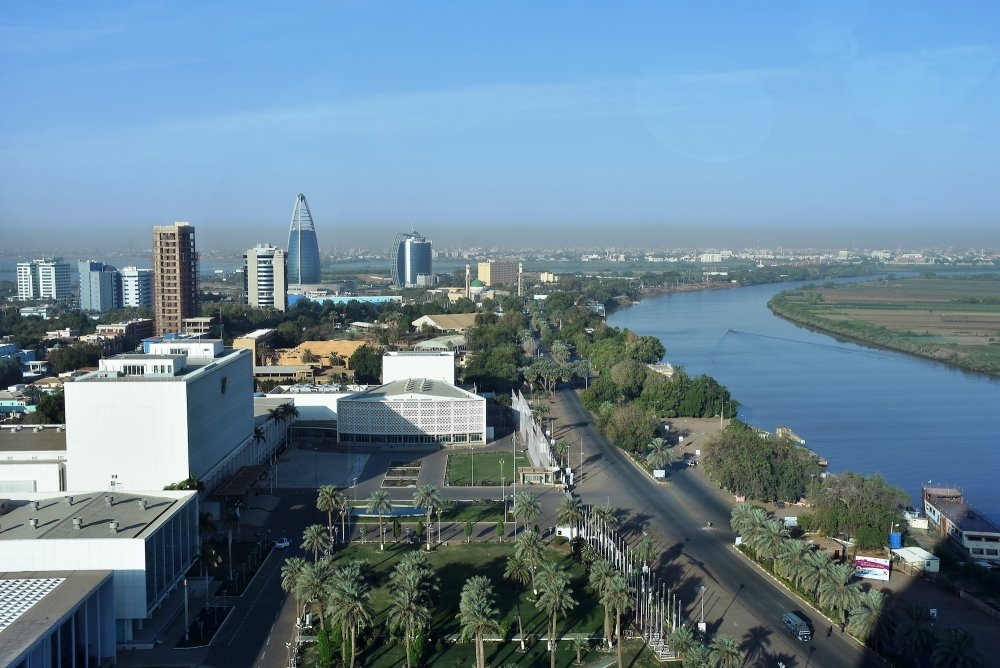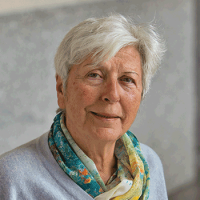Date: Sunday, 08 January 2023
In December, the Sudanese military and civilian groups reached a new framework agreement. This is a victory for civilians, but Sudan’s history is marked by many military coups. Despite a tumultuous past, both sides are learning how to coexist.

In the generally bleak landscape of democracy in the Arab world, Sudan stands out as the country that is beginning, in fits and starts, to accept what democracy is all about. The Sudanese military and the coalition of civil society organizations known as the Forces for Freedom and Change have been negotiating back and forth since demonstrations first broke out in 2018.
Sudan does not have a democratic government yet, but at this point both military and civilians understand that there will never be a full victory for either side.
Sudan does not have a democratic government yet, but at this point both military and civilians understand that there will never be a full victory for either side. In the end, they know the need to find a balance and accept that it will have to be constantly recalibrated. In other words, they are moving toward democracy, which is less a set of noble goals and values than it is the acceptance of the need for pragmatic compromise among countervailing forces.
On December 5, 2022, the Sudanese military and the Forces of Freedom and Change signed a framework agreement outlining the modalities of a two-year transition to civilian government. Immediately, thousands of people took to the streets to protest the agreement, seeing it as a step back from the one reached in August 2019. The military broke that agreement, plunging the country into renewed turmoil.
The anger of Sudanese citizens is understandable, but is important not to miss the fact that civilians have scored a significant victory, dragging the military back to the negotiating table and frustrating its attempt to rule on its own.
A history of turmoil
This is not a new story. Since the day of its independence on January 1, 1956, Sudan has been oscillating back and forth between military and civilian regimes, none of which has been able to bring stability to the country. For the first two years, control of the government was in the hands of the Umma Party and the Democratic Unionist Party (DUP). Each was affiliated with one of the two major Sufi brotherhoods and the two were incapable of cooperating. A military coup d’état under the leadership of General Ibrahim Abboud put an end to civilian rule in late 1958. The military remained in power until November 1964, when General Abboud finally resigned, being unable to quell the discontent and stabilize the country despite the imposition of a six-year state of emergency.
The return to a democratic process did not stabilize the country any more than military rule had done. The Umma Party and the DUP re-emerged, and so did their rivalry, resulting in a series of unstable cabinets, finally interrupted decisively in May 1969 by a new military coup d’état under the leadership of Colonel Jafaar al-Nimeiri. Independent political parties were again banned and the military consolidated its position, with Nimeiri becoming president.
The country remained unstable, however, because of several attempted rebellions within the military and war in different parts of the country. In April 1985, Nimeiri was deposed in the seemingly inevitable coup d’état. The new period of civilian rule lasted four years, with the two old rival political parties, the Umma and the DUP, returning to power and again failing to cooperate enough to govern the country. They were pushed aside once again by the military under the leadership of Colonel Omar al-Bashir.
The drama of the multiple wars... diverted attention from the significant political changes that were taking place at the same time.
Bashir then presided over the most confusing and violent period in the history of independent Sudan. The war between the Arab North and the African South, which had simmered since independence, flared up, eventually leading to South Sudan becoming an independent country in July 2011. War also still raged in many peripheral regions in the West. The drama of the multiple wars, with conflict continuing even after the independence of the South, diverted attention from the significant political changes that were taking place at the same time.
Omar al-Bashir, despite the backing of the military and his willingness to use brutal repression to fend off enemies, was challenged by a civilian leader, Hassan al-Turabi, and forced to share power with him. An Islamist ideologue with a very sophisticated and urbane façade, Turabi led the National Islamic Front, an incarnation of the Muslim Brotherhood. He had supported Bashir in the 1989 coup d’état but later challenged him by trying to impose an Islamist agenda on the government. As a result, he was imprisoned repeatedly. Hassan al-Turabi’s rise also put an end to the influence of the Umma and the DUP. There was thus a renewal of the political forces in the country that became important after April 2019 when al-Bashir was overthrown by the military.
Hope for a transition
The circumstances of this military overthrow were extremely different from previous ones. The country was in the midst of a civilian rebellion, which had become increasingly well organized and powerful, greatly restricting the military’s room for maneuver. Beginning in December 2018, civilian unrest spread through Sudan, part of a belated wave of the Arab uprisings that also hit Algeria, Iraq and Lebanon at that time. What made the Sudanese uprising unique was that civilians got organized, with civil society groups, in particular the professional associations, playing an important part.
Under the circumstances, there was no way for the military to dictate the terms of a transition after it seized power. Instead, it was forced to enter almost immediately into negotiation with the Forces of Freedom and Change. The military broke a first agreement for transition to civilian rule negotiated in August 2019, but it was forced to reach a new agreement on December 5, 2022, as mentioned earlier.
While there are undoubtedly elements in the military that would like to establish total control, there are reasons for guarded optimism...
Is this a turning point for Sudan, or just a new iteration of the back and forth between military and civilian rule the country has experienced for its entire history? While there are undoubtedly elements in the military that would like to establish total control, there are reasons for guarded optimism, with two elements in the present situation standing out.
First is the renewal that has taken place in the civilian forces in the country. Earlier, civilian rule always put the Umma Party and the DUP, with their religious roots and their rivalries, on center stage. In both parties, the old leadership has moved on, the parties are no longer controlled by dynasties, and their importance has faded compared to that of newer organizations. The same seems to be true of the NIF after the death of Hassan al-Turabi. The Forces of Freedom and Change represent a broader section of the population; they are younger, more mobilized and better led. The second important element is that most of the military leadership seems to realize that they cannot rule alone. Military and civilians have reached a stalemate, and it is out of this stalemate that compromise, and possibly eventually a democratic process, can emerge.
The views expressed in these articles are those of the author and do not reflect the official position of the Wilson Center.

The Wilson Center’s Middle East Program serves as a crucial resource for the policymaking community and beyond, providing analyses and research that helps inform U.S. foreign policymaking, stimulates public debate, and expands knowledge about issues in the wider Middle East and North Africa (MENA) region. Read more